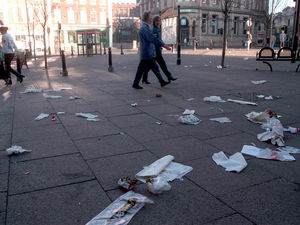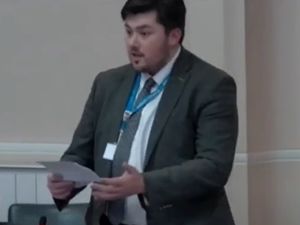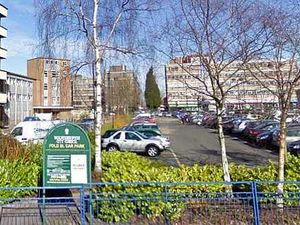Britain should consider possibility of working with Taliban, says Tory MP
Britain should not reject "out of hand" the possibility of working with the Taliban to forge a peaceful solution to the crisis in Afghanistan, An MP has said.

Michael Fabricant urged ministers to learn the lessons of the past and engage with the Taliban, which has seized control of Afghanistan after Western forces pulled out last week.
The Conservative MP for Lichfield said Britain was forced to withdraw its troops after American pulled out in order to prevent "the loss of many British servicemen's lives".
"However, the manner of the American withdrawal, being so abrupt, has been a huge betrayal of the Afghan people," he added.
"While we could not remain there indefinitely, to have left them in the lurch like this, is not only a moral disaster for the West, it also signals our lack of perseverance in trying to achieve what is right."
He added: "It looks as if the Taliban is here to stay. All we can hope for is that a combination of the threat of economic sanctions and isolation from the rest of the world, will cause the Taliban to have a more humane regime than that which they ruled over some 20 years ago.
"But the lessons to be learned from the past is that if it looks like the Taliban want to work with us, we shouldn't reject them out of hand.
"I remember that Fidel Castro and Cuba wanted to be friends with the West but America rejected them, driving them into the arms of the Soviet Union.
"We mustn't repeat the same mistakes today."
Stuart Anderson, Conservative MP for Wolverhampton South West and a former British Army sniper in the Royal Green Jackets, said the crisis had hit close to home as he knew many people who had served in Afghanistan.
They include his younger brother James, who served in the same regiment as him.
"I've lost many friends who served in Afghanistan and never returned home, so for me it's very personal," Mr Anderson said. "I saw the after effects on my brother and my friends who did come home, and it is devastating for us all to see the Taliban back in power."
Mr Anderson, who sits on the Defence Select Committee, said it was vital that British passport holders and all Afghans who had supported Britain over the last 20 years were helped to get out of the country as soon as possible.
He added: "The situation is not one that we want to be in, but as Brits we could not stay there on our own after the withdrawal of the US and the rest of Nato. We're simply not big enough.
"What I would have liked to see is a stabilisation force in place, led by the Americans and Nato, which would have helped with the transition and continued the training of the Afghan national army.
"The Afghan army is three to four times the size of the Taliban and they still folded like a pack of cards. With all the leaders fleeing, why would the people stay and fight?
"The world is very focused on isolationism now and I am concerned that this has set a pattern for the direction we go in the coming years. The only ones who will be laughing about it is China and Russia."
Wolverhampton South East MP Pat McFadden, said the situation was "deeply distressing" but that there had been "no realistic" prospect of the UK staying in Afghanistan once the US pulled out.
"That exposes the limits of our capabilities among all the talk of 'Global Britain', he said.
"The brave British servicemen and women and their allies who served there, many of whom gave their lives, made a real and important difference over the past 20 years.
"The people of Afghanistan had far greater freedom than they had under the previous Taliban rule and all that is now under threat.
“We have a duty to UK citizens who remain there to do all we can to help them out but also to people like those who were interpreters for the British army and their families.
"They took real risks in working for us and will be in real danger now.
“This whole episode raises big questions about where we now stand in the world. What does all our talk of human rights and equality mean if we cannot back it up?
"What will our response be when we see other instances of repression around the world? The past two weeks and the rapid Taliban advance has shown that not intervening can have just as deadly consequences as intervening."
John Spellar, Labour MP for Warley, said a lot of the blame for the crisis lies at the feet of those in the Afghan government, "who did nothing to deal with the rampant corruption that eroded public trust".
"The international community needs to quickly come up with a common policy to deal with the current and future crisis in Afghanistan," he added.
"The United States were carrying the bulk of the burden and in the end were not prepared to continue, as they could see no long term improvement.
"It was a holding operation, and if they had left in one, five or ten years, would it have been any different? And how could they justify it to the American people?"
South Staffordshire MP and government minister Gavin Williamson visited Afghanistan several times when he was defence secretary and met with president Ashraf Ghani, who has now fled the country.
He said: "Having previously seen the work that was done between British and Afghan forces to stabilise the country it is heartbreaking to see what is happening there now.
"The priority must be to get as many of those who have worked to support us to safety as soon as possible."
West Bromwich East MP Nicola Richards, said: "The direction of travel in Afghanistan is beyond disappointing and it is a critical situation.
"We need to do all we can to get those people out who need to leave."





